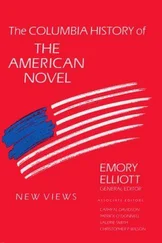George Saintsbury - A History of the French Novel. Volume 1. From the Beginning to 1800
Здесь есть возможность читать онлайн «George Saintsbury - A History of the French Novel. Volume 1. From the Beginning to 1800» — ознакомительный отрывок электронной книги совершенно бесплатно, а после прочтения отрывка купить полную версию. В некоторых случаях можно слушать аудио, скачать через торрент в формате fb2 и присутствует краткое содержание. Жанр: foreign_language, foreign_prose, на английском языке. Описание произведения, (предисловие) а так же отзывы посетителей доступны на портале библиотеки ЛибКат.
- Название:A History of the French Novel. Volume 1. From the Beginning to 1800
- Автор:
- Жанр:
- Год:неизвестен
- ISBN:нет данных
- Рейтинг книги:4 / 5. Голосов: 1
-
Избранное:Добавить в избранное
- Отзывы:
-
Ваша оценка:
- 80
- 1
- 2
- 3
- 4
- 5
A History of the French Novel. Volume 1. From the Beginning to 1800: краткое содержание, описание и аннотация
Предлагаем к чтению аннотацию, описание, краткое содержание или предисловие (зависит от того, что написал сам автор книги «A History of the French Novel. Volume 1. From the Beginning to 1800»). Если вы не нашли необходимую информацию о книге — напишите в комментариях, мы постараемся отыскать её.
A History of the French Novel. Volume 1. From the Beginning to 1800 — читать онлайн ознакомительный отрывок
Ниже представлен текст книги, разбитый по страницам. Система сохранения места последней прочитанной страницы, позволяет с удобством читать онлайн бесплатно книгу «A History of the French Novel. Volume 1. From the Beginning to 1800», без необходимости каждый раз заново искать на чём Вы остановились. Поставьте закладку, и сможете в любой момент перейти на страницу, на которой закончили чтение.
Интервал:
Закладка:
Fulke, or, as he himself spelt it, Foulke Greville, in his later years Lord Brooke, 24 24 He is a little liable to be confounded with two writers (brothers of a patronymic the same as his title) Samuel and Christopher Brooke, the latter of whom wrote poems of some merit, which Dr. Grosart has edited.
was of a noble house in Warwickshire connected with the Beauchamps and the Willoughbys. He was born in 1554, was educated at Shrewsbury with Philip Sidney, whose kinsman, lifelong friend, and first biographer he was – proceeded, not like Sidney to Oxford, but to Cambridge (where he was a member, it would seem, of Jesus College, not as usually said of Trinity) – received early lucrative preferments chiefly in connection with the government of Wales, was a favourite courtier of Elizabeth's during all her later life, and, obtaining a royal gift of Warwick Castle, became the ancestor of the present earls of Warwick. In 1614 he became Chancellor of the Exchequer. Lord Brooke, who lived to a considerable age, was stabbed in a rather mysterious manner in 1628 by a servant named Haywood, who is said to have been enraged by discovering that his master had left him nothing in his will. The story is, as has been said, mysterious, and the affair seems to have been hushed up. Lord Brooke was not universally popular, and a very savage contemporary epitaph on him has been preserved. But he had been the patron of the youthful Davenant, and has left not a little curious literary work, which has only been recently collected, and little of which saw the light in his own lifetime. Of his two singular plays, Mustapha and Alaham (closet-dramas having something in common with the Senecan model), Mustapha was printed in 1609; but it would seem piratically. His chief prose work, the Life of Sidney , was not printed till 1652. His chief work in verse, the singular Poems of Monarchy (ethical and political treatises), did not appear till eighteen years later, as well as the allied Treatise on Religion . But poems or tracts on human learning, on wars, and other things, together with his tragedies as above, had appeared in 1633. This publication, a folio volume, also contained by far the most interesting part of his work, the so-called sonnet collection of Cœlica – a medley, like many of those mentioned in this chapter, of lyrics and short poems of all lengths and metrical arrangements, but, unlike almost all of them, dealing with many subjects, and apparently addressed to more than one person. It is here, and in parts of the prose, that the reader who has not a very great love for Elizabethan literature and some experience of it, can be recommended to seek confirmation of the estimate in which Greville was held by Charles Lamb, and of the very excusable and pious, though perhaps excessive, admiration of his editor Dr. Grosart. Even Cœlica is very unlikely to find readers as a whole, owing to the strangely repellent character of Brooke's thought, which is intricate and obscure, and of his style, which is at any rate sometimes as harsh and eccentric as the theories of poetry which made him compose verse-treatises on politics. Nevertheless there is much nobility of thought and expression in him, and not unfrequent flashes of real poetry, while his very faults are characteristic. He may be represented here by a piece from Cœlica , in which he is at his very best, and most poetical because most simple —
"I, with whose colours Myra dressed her head,
I, that ware posies of her own hand making,
I, that mine own name in the chimnies read
By Myra finely wrought ere I was waking:
Must I look on, in hope time coming may
With change bring back my turn again to play?
"I, that on Sunday at the church-stile found
A garland sweet with true love knots in flowers,
Which I to wear about mine arms, was bound
That each of us might know that all was ours:
Must I lead now an idle life in wishes,
And follow Cupid for his loaves and fishes?
"I, that did wear the ring her mother left,
I, for whose love she gloried to be blamed,
I, with whose eyes her eyes committed theft,
I, who did make her blush when I was named:
Must I lose ring, flowers, blush, theft, and go naked,
Watching with sighs till dead love be awaked?
"I, that when drowsy Argus fell asleep,
Like jealousy o'erwatchèd with desire,
Was ever warnéd modesty to keep
While her breath, speaking, kindled Nature's fire:
Must I look on a-cold while others warm them?
Do Vulcan's brothers in such fine nets arm them?
"Was it for this that I might Myra see
Washing the water with her beauties white ?
Yet would she never write her love to me:
Thinks wit of change when thoughts are in delight?
Mad girls may safely love as they may leave;
No man can print a kiss: lines may deceive."
Had Brooke always written with this force and directness he would have been a great poet. As it is, he has but the ore of poetry, not the smelted metal.
For there is no doubt that Sidney here holds the primacy, not merely in time but in value, of the whole school, putting Spenser and Shakespere aside. That thirty or forty years' diligent study of Italian models had much to do with the extraordinary advance visible in his sonnets over those of Tottel's Miscellany is, no doubt, undeniable. But many causes besides the inexplicable residuum of fortunate inspiration, which eludes the most careful search into literary cause and effect, had to do with the production of the "lofty, insolent, and passionate vein," which becomes noticeable in English poetry for the first time about 1580, and which dominates it, if we include the late autumn-summer of Milton's last productions, for a hundred years. Perhaps it is not too much to say that this makes its very first appearance in Sidney's verse, for The Shepherd's Calendar , though of an even more perfect, is of a milder strain. The inevitable tendency of criticism to gossip about poets instead of criticising poetry has usually mixed a great deal of personal matter with the accounts of Astrophel and Stella , the series of sonnets which is Sidney's greatest literary work, and which was first published some years after his death in an incorrect and probably pirated edition by Thomas Nash. There is no doubt that there was a real affection between Sidney (Astrophel) and Penelope Devereux (Stella), daughter of the Earl of Essex, afterwards Lady Rich, and that marriage proving unhappy, Lady Mountjoy. But the attempts which have been made to identify every hint and allusion in the series with some fact or date, though falling short of the unimaginable folly of scholastic labour-lost which has been expended on the sonnets of Shakespere, still must appear somewhat idle to those who know the usual genesis of love-poetry – how that it is of imagination all compact, and that actual occurrences are much oftener occasions and bases than causes and material of it. It is of the smallest possible importance or interest to a rational man to discover what was the occasion of Sidney's writing these charming poems – the important point is their charm. And in this respect (giving heed to his date and his opportunities of imitation) I should put Sidney third to Shakespere and Spenser. The very first piece of the series, an oddly compounded sonnet of thirteen Alexandrines and a final heroic, strikes the note of intense and fresh poetry which is only heard afar off in Surrey and Wyatt, which is hopelessly to seek in the tentatives of Turberville and Googe, and which is smothered with jejune and merely literary ornament in the less formless work of Sidney's contemporary, Thomas Watson. The second line —
Читать дальшеИнтервал:
Закладка:
Похожие книги на «A History of the French Novel. Volume 1. From the Beginning to 1800»
Представляем Вашему вниманию похожие книги на «A History of the French Novel. Volume 1. From the Beginning to 1800» списком для выбора. Мы отобрали схожую по названию и смыслу литературу в надежде предоставить читателям больше вариантов отыскать новые, интересные, ещё непрочитанные произведения.
Обсуждение, отзывы о книге «A History of the French Novel. Volume 1. From the Beginning to 1800» и просто собственные мнения читателей. Оставьте ваши комментарии, напишите, что Вы думаете о произведении, его смысле или главных героях. Укажите что конкретно понравилось, а что нет, и почему Вы так считаете.












